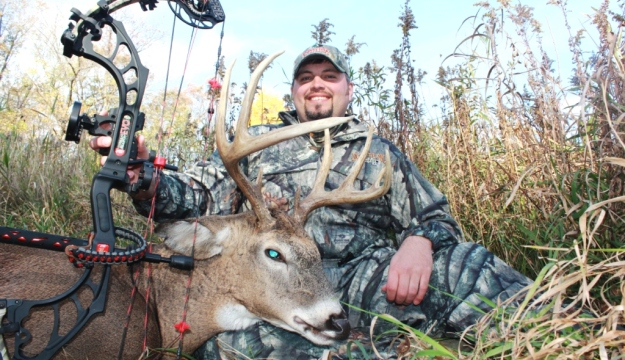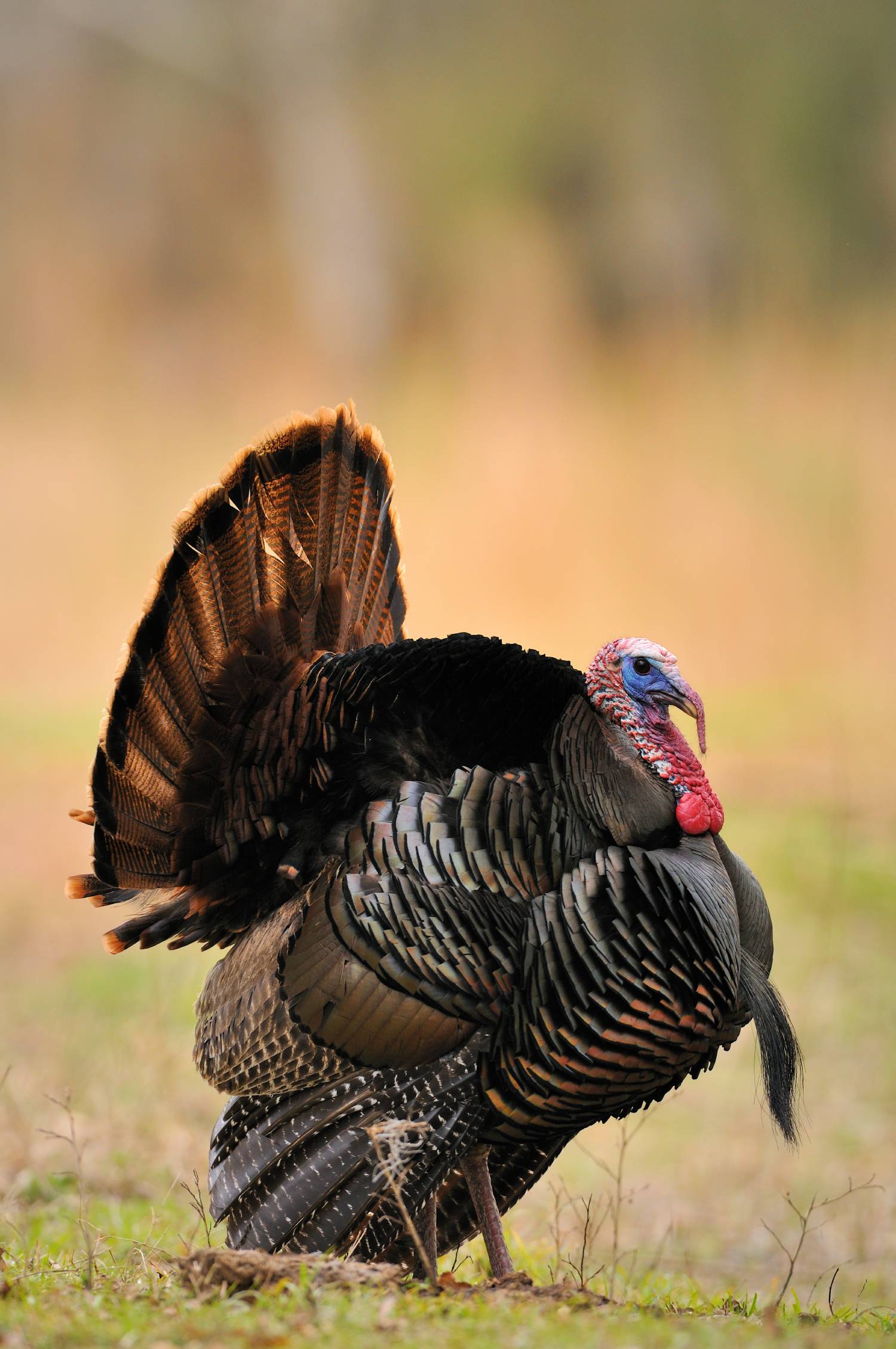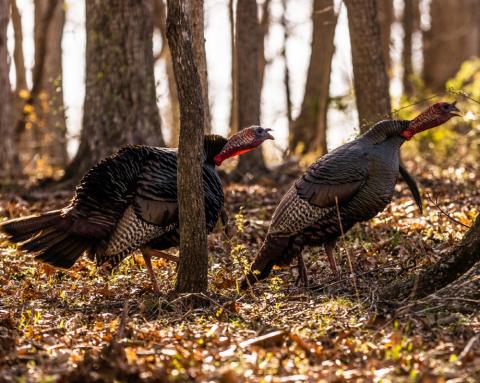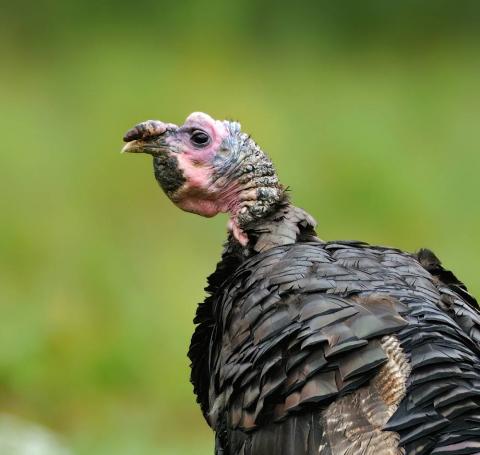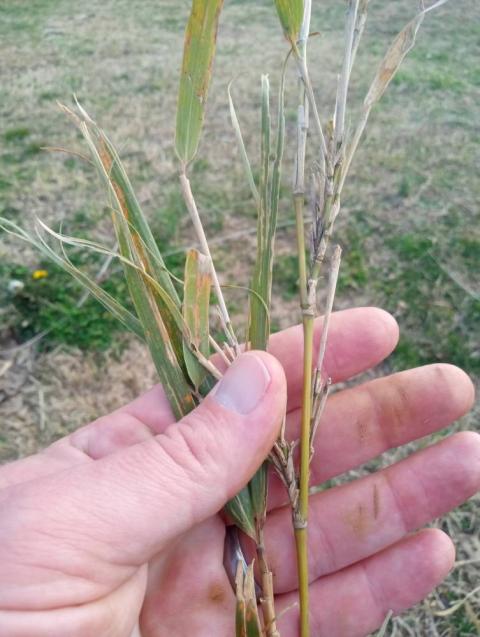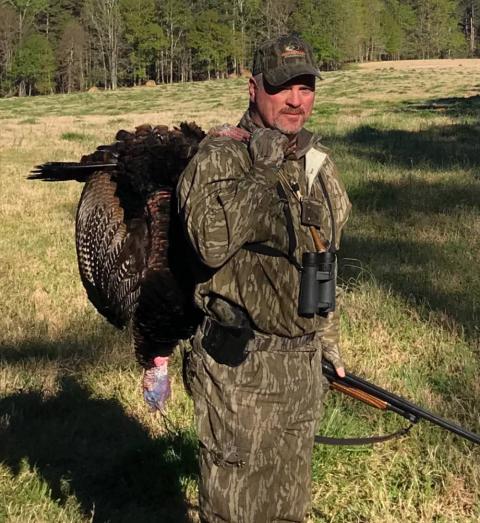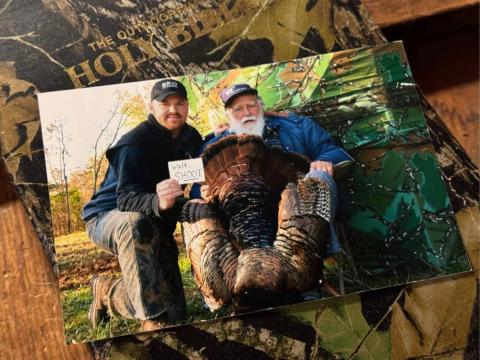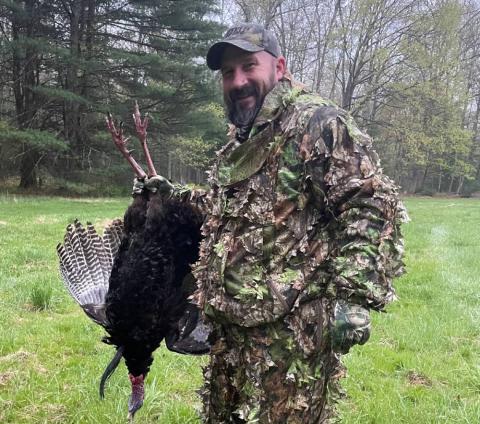by Bob McNally
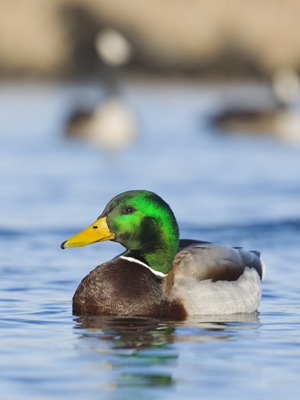 Never "over-call." When ducks are committed to your spread, hush, calling can then only hurt your chances. In many public areas too many hunters call too much. In such a case, not calling at all may best lure ducks within range.
Never "over-call." When ducks are committed to your spread, hush, calling can then only hurt your chances. In many public areas too many hunters call too much. In such a case, not calling at all may best lure ducks within range.- Be mindful of call volume. Loud, "high-ball" or "hail" calls are good for getting waterfowl attention, but when they turn to you, call softer and more carefully.
- The best caller in a blind should orchestrate or "lead" the calling. But even callers with limited ability can add to "background" chatter, by quacking and clucking. It makes sense to raise a calling ruckus, especially when wary birds are still some distance away.
- Mallard calling works for ducks everywhere, in all flyways, even for gadwalls, pintails, teal, widgeon and divers. Mallards travel with other ducks down the flyways, and other birds are used to hearing raucous mallards raise Cain.
- Many beginning duck hunters are apprehensive about their calling. But don't be afraid to call, it's the only real way to learn. Listen to experienced hunters call on the water, and mimic what they do and when they do it.
- The best calling teachers are ducks themselves. Visit a refuge or even a local park, find some ducks, and listen to them. Mallards are easiest to find, and most obliging to call. Widgeon are very vocal, too. Be sure to bring your pet calls, and work with the birds, making the same sounds they do.
- Some very good audio tapes are on the market that teach calling. Most are made by call companies. Get one and leave it in your car - where the racket won't bother anyone but you. Be sure to leave your calls in your car, too.
- Pintail and widgeon whistles sometimes can be very effective in pulling down mallards, especially in hard-hunted public areas where everyone is working greenheads with aggressive, loud, incessant mallard "talk." Adding a few "confidence" widgeon or pintail whistles, while one hunter calls to mallards, may draw in greenheads that otherwise are spooky.

 Never "over-call." When ducks are committed to your spread, hush, calling can then only hurt your chances. In many public areas too many hunters call too much. In such a case, not calling at all may best lure ducks within range.
Never "over-call." When ducks are committed to your spread, hush, calling can then only hurt your chances. In many public areas too many hunters call too much. In such a case, not calling at all may best lure ducks within range.












